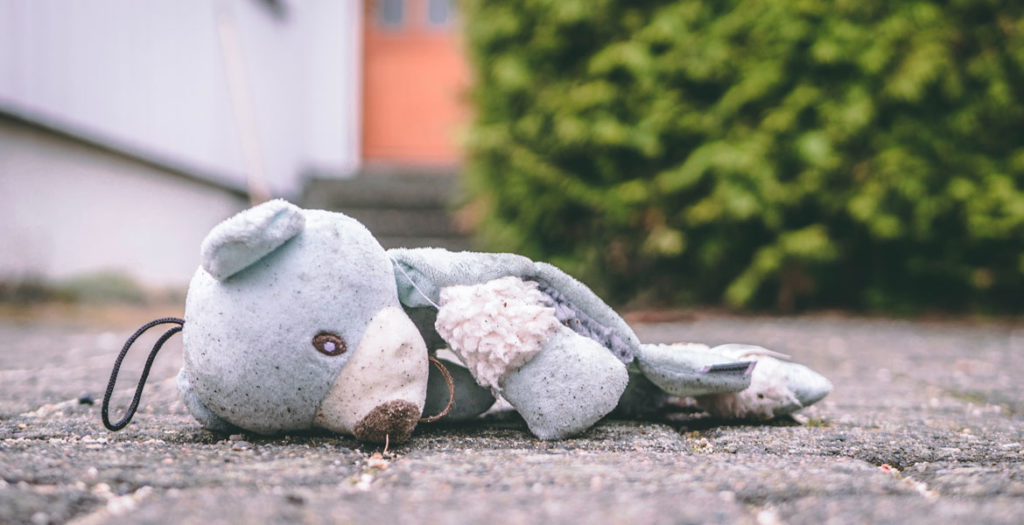What Are the Long Term Effects of Childhood Trauma?
You’ve probably heard the saying: “They were so young when that happened. Surely they won’t remember it when they grow up.” You might have also heard this saying applied to traumatic events that people experience when they were kids. Is it true? Do kids really forget traumatic events easily if they happen early enough? Or, is that just wishful thinking? Kids are definitely resilient, and some memories certainly sink into the depths of our minds after time. However, sometimes childhood trauma can have lingering and long term effects.
Even though it might be hard to realize that your child is suffering from the effects of adverse childhood experiences, it’s important to get them professional help and therapy early in order to avoid the long term effects of childhood trauma.
Understanding Childhood Trauma
Many different experiences can cause trauma. Children might have lingering trauma from any of the following events:
• Physical or sexual abuse
• Car accidents
• Natural disaster
• Medical trauma
• Bullying
• Living in a dangerous neighborhood
A traumatic event can be a one-time thing, or it can be ongoing stress where the traumatic experience happens over and over. Trauma doesn’t have to be something that happens directly to the child either. Kids can become traumatized by watching a loved one suffer. They can also get trauma from violent media exposure.
It’s important to remember that an upsetting experience isn’t necessarily also traumatic. For example, divorce tends to be very upsetting for kids, but it doesn’t usually result in trauma.
PTSD From Childhood Trauma
It’s not that unusual for kids to be exposed to traumatic events. Many children experience them at some point in their young lives. Many also return to a normal state of function after the event. The difference is somewhat explained by gender. Check out the following statistics:
• 3% and 15% of girls develop PTSD after a traumatic event
• 1% and 6% of boys develop PTSD after a traumatic event
How does PTSD affect kids? It’s similar to adults in that they have flashbacks of the event over and over. They might develop a fear or avoidance of anything that reminds them of the trauma. They might also reenact the traumatic event while playing.
Children might also believe that they missed something that could have alerted them to the traumatic event. This causes them to be hyperaware and vigilant of possible warning signs of a similar event. Kids who have PTSD may display the following symptoms:
• Anger and aggression
• Anxiety or depression
• Fear and lack of trust
• Self-destructive behavior
• Low self-esteem
• Feeling alone or isolated
Even kids that don’t have PTSD may display various emotional and behavioral issues after a traumatic event. If you think your child has been affected by a recent trauma, keep an eye out for these symptoms in the weeks and months after:
• Anger and irritability
• Inability to focus
• Lack of appetite
• Sudden new fears
• Talking about death or safety
• Losing interest in favorite activities
• Sleep problems
• Sadness
• Physical complaints like headache or stomachache
• Not wanting to go to school
Risk Factors
What are the risk factors that turn adverse childhood experiences into lingering trauma? As mentioned earlier, many children can make it through traumatic events without any long-lasting effects. If your child meets some of the following criteria, then they might be more at risk for lingering effects of childhood trauma.
• Children under the age of eight tend to be more at risk than older children
• The more extreme the traumatic event, the greater chance it has to impact your child long-term
• Repeated exposure to traumatic events can cause lasting effects
Long Term Effects Of Childhood Trauma
Childhood trauma is capable of causing various long-term consequences when the person grows up. The reason? It actually affects child brain development. One 2015 study found that the more instances of childhood trauma a person has, the more likely they are to have health problems later in life. Some specific problems that childhood trauma can raise the risk for include:
• Asthma
• Addiction
• Coronary heart disease
• Depression
• Diabetes
• Obesity
• Stroke
• Suicide
Suicide attempts tend to be much higher in adults who experienced chronic trauma like abuse and domestic violence.
Emotional and Physical Responses
The health issues in the previous section are linked to the emotional and physical responses to trauma. A physical response to trauma involves elevated proteins and increased levels of stress hormones. The S100B proteins that are often found in the brain after head injuries actually increase in the brains of children who experience emotional trauma. This protein can cause brain inflammation.
You probably know how stress can affect you physically. It causes symptoms like a racing heart, cold sweat or difficulty breathing. In childhood trauma victims, these hormones might stay elevated, which can cause inflammation and lasting health problems.
Trauma is often the culprit behind mental health disorders as well. Emotional responses to trauma can lead to unhealthy coping mechanisms. That’s why trauma victims are more likely to have an increased risk for substance abuse and obesity.
Relationship Effects
Some types of trauma damage the relationship between a child and their caregiver. These relationships are important in helping children to trust other people, manage their emotions and interact socially. Traumatic events that damage this relationship teaches children that they can’t trust people around them and that the world is scary and dangerous. This makes it difficult for them to form relationships with other children and then later as adults as well.
Studies on adults with failed marriages and relationships often find that one or both of the adults experienced childhood trauma at some point in their life.
How To Help Your Child
What should you do if you think your child is suffering from the effects of childhood trauma? It’s normal to feel overwhelmed and concerned. Therapy can definitely help, but you can also take some other steps, including the following:
• Encourage your child to talk about their feelings and emotions
• Validate any emotions or feelings they have about the traumatic event
• Answer any questions they have with honesty and compassion
• Reassure your child that you will keep them safe
• Try to stick to a daily routine
Make an effort to truly understand where your child is coming from. Things that are traumatic to children aren’t always traumatic to adults. Their impression of the event is likely to be totally different from your own.
Menachem Psychotherapy Group is a team of therapists trained to work with childhood trauma. We work to understand your history and your child’s history in order to find out how it’s influencing you in the present. Get in touch with Menachem Psychotherapy Group today to find out more about trauma therapy and how it can help.




